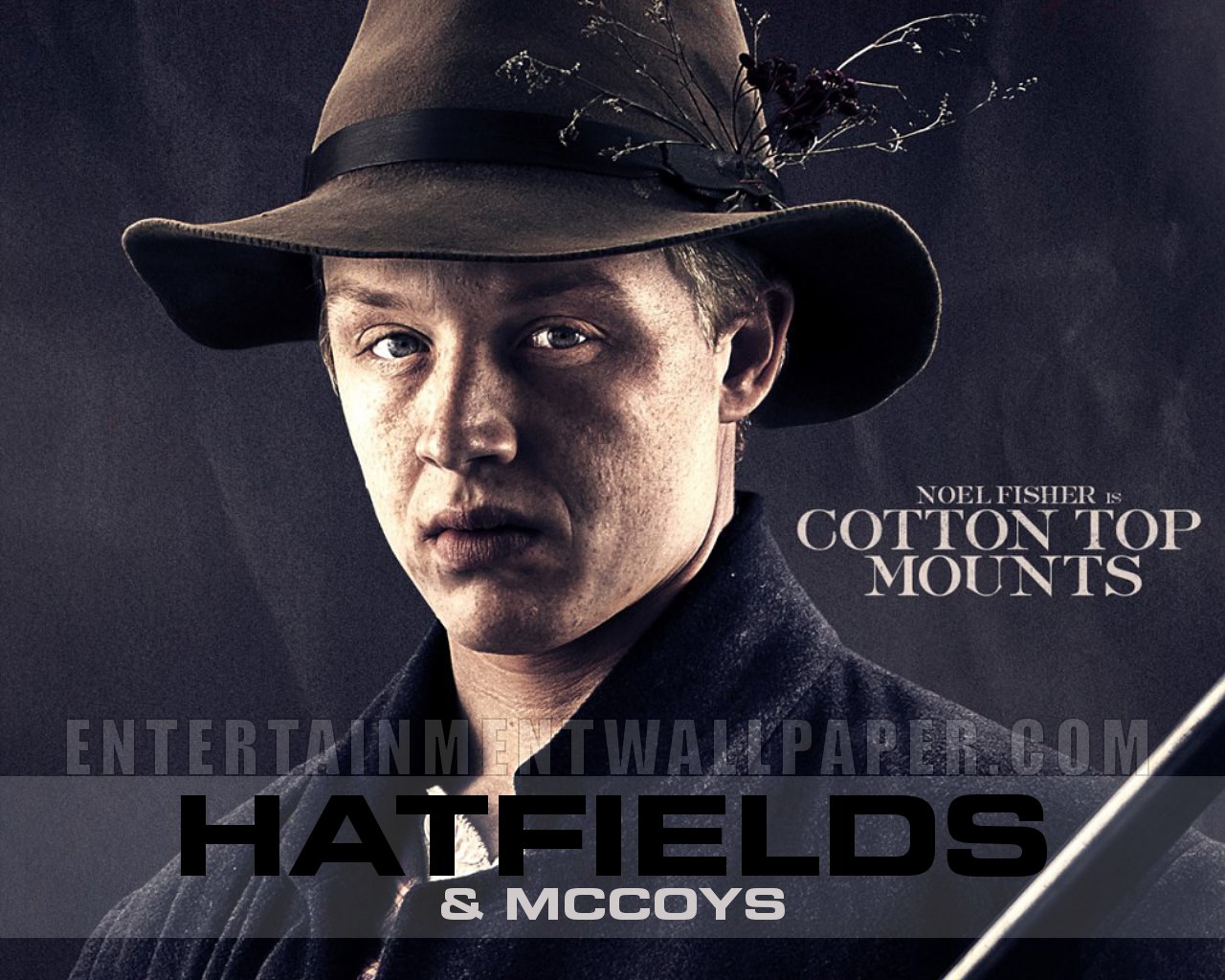Hatfields and McCoys: Two Views of God

In the miniseries "Hatfields and McCoys" we are presented with two starkly different views of God. The story is a dramatic retelling of the post-Civil War feud between two rival families. [I know nothing of the actual historical account. My knowledge of this feud comes entirely from the TV miniseries.]
On one side of the feud is Randall McCoy and his clan. Randall feels that he has been cheated by the Hatfield family. In fact he seems incapable of perceiving anything but slights from them. Even gracious peace offerings are turned upside down and seen as insults.
Randall attends church weekly with his family, and he begins the story with a firm confidence that God, who is just, will pour out his wrath on the Hatfields for their wicked ways.
"Devil" Anse Hatfield, on the other hand, begins the story as an atheist. He cares nothing for God or religion, and only attends Sunday services to please his wife. After his initial attempts at smoothing things over fail, Devil Anse pursues a relentless cycle of vengeance that has no end in sight.
Something changes, however, when Hatfield's son Johnse, betrays family secrets to the McCoys. Father and son go fishing, with the father intending to kill his own son for the betrayal, even though it was unintended and out of ignorance. Yet Devil Anse cannot bring himself to end his son's life. Instead he forgives the betrayal and both men return home.
This is a turning point for the godless Hatfield. He begins to see the necessity of mercy and forgiveness. This eventually leads him to the sacrament of baptism, to becoming a Christian.
Randall McCoy, on the other hand, suffers defeat after defeat. His family is not as wealthy nor as well connected as the Hatfields. He wonders where God is. How can a just God allow such evil to persist?
With most of his family dead and his home in ruins Randall McCoy denounces God. If God would not give him justice, then there must be no God at all.
Faith in a God of pure justice, a God of vengeance, leads to atheism. Mercy and forgiveness lead to faith in a different sort of God altogether.
These views come to a head when one of Hatfield's nephews, the simple minded "Cotton Top", is captured by the authorities. The wide ranging feud has, of course, racked up quite the body count, and Cotton Top is easily pegged as the scapegoat. He is sentenced to hanging.
Rather than ride to the rescue of his nephew, arguably the most innocent of all the Hatfields, Devil Anse makes the decision to let him die. The only way to end the feud is for one side to say enough, for one family to make a sacrifice and to refuse to seek revenge. Cotton Top is hanged with Randall McCoy watching, unable to understand the peace that has now been given.
That is the sort of God that Devil Anse comes to believe in, to follow, one who sacrifices the innocent son that peace may be achieved.
Comments
Post a Comment